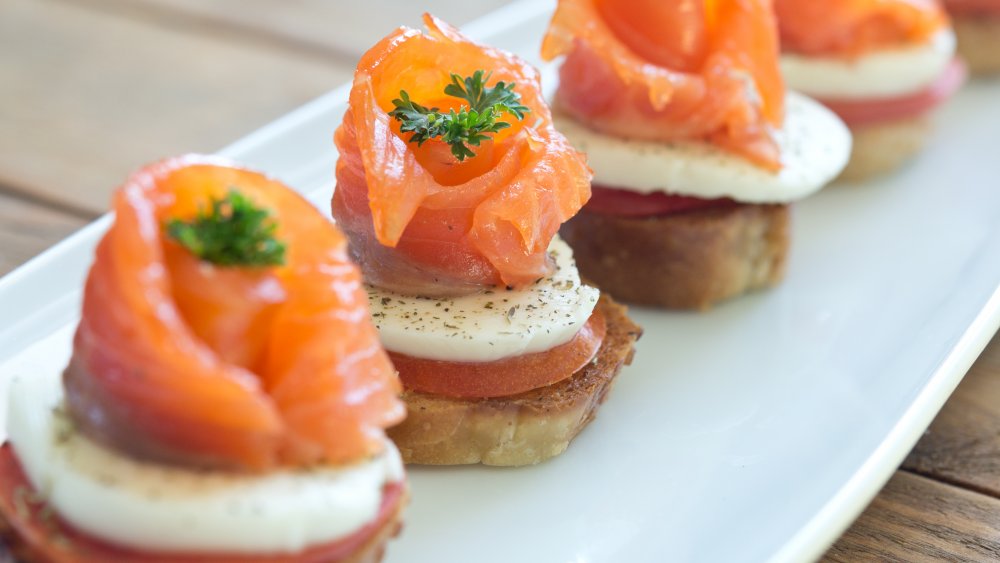Why You Should Absolutely Never Touch The Fish At A Buffet
A buffet can be many things to many people: an affordable smorgasbord, a dear friend to your taste buds, an enemy to your waistline, or a mistake that leaves a bitter taste in your mouth. Maybe you like to go hog-wild piling your plate with pork fried rice and orange chicken at your local Chinese buffet but decide to switch things up with a small octopus that seemingly hugs your tongue goodbye with its cold, dead tentacles as you arduously chew through it. Perhaps you're dying to drown your arteries in mac n' cheese. The possibilities are pretty much endless.
No matter what poison you pick, you may have noticed a few things about the buffet experience that seem a bit fishy. Writing for Psychology Today, Rice University marketing professor Utpal Dholakia observes that restaurants try to limit your portions with "half-sized plates and ramekins." The staff change silverware sparingly to dampen your appetite for more courses. But the fishiest thing of all about a buffet is well, the fish. And when you see why, you might not need to be manipulated into eating less of it.
The fishiness you might not see in your seafood
You know the old saying, "There's plenty of fish in the sea?" Well, when there are too many fish at a restaurant, the leftovers may end up on your undersized buffet plate — or as How Stuff Works diplomatically put it, "You can get creative with last Friday's fish." Chef Matthew Britt added that you can just slap a new name on less-than-fresh food and make it seem exciting and new. That's not inherently a bad thing. It kills three birds with one stone, enabling a restaurant to reduce waste and fatten its wallet while taking a bite out of yours. The big problem, though, is that a restaurant might not kill the sea of bacteria and parasites your fish could be swimming in.
If you eat raw fish at a buffet, it may contain a wriggly surprise. Insider writes that fish served raw, such as the sashimi you might find on a seafood buffet, must be frozen to kill off possible parasites, per Food and Drug Administration requirements. But as the consumer of said seafood, you can't see whether the food was frozen beforehand. Moreover, freezing won't necessarily protect you from the bacteria that would have been killed by cooking.
If your fish is cooked, it won't mean that your goose won't be. As Vice describes, wild fish by and large are crawling with worms. So if your seafood buffet advertises wild fish, it could ironically serve as the bait for you to catch a hookworm.

